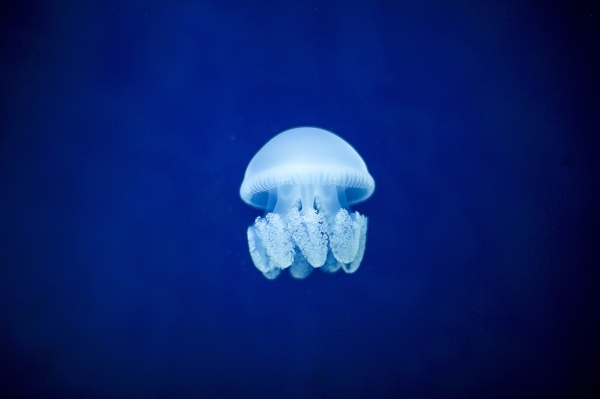AWI research team shows that jellyfish play an important, previously unknown role in the diet of amphipods during the polar night.
AWI research team shows that jellyfish play an important, previously unknown role in the diet of amphipods during the polar night.
The Arctic is changing rapidly due to climate change. It is not only affected by increasing surface temperatures, but also by warm water from the Atlantic, which is flowing in more and more – changing the structures and functions of the ecosystem as it also leads to species from warmer regions, like jellyfish, arriving in the Arctic. Using DNA metabarcoding, researchers from the Alfred Wegener Institute have now been able to prove for the first time that these jellyfish serve as food for amphipods on Svalbard during the polar night and thus play a greater role in Arctic food webs than previously assumed. They present their findings in a recent article in the journal Frontiers in Marine Science (doi: 10.3389/fmars.2024.1327650).
In recent years, warm, salty water from the Atlantic has increasingly found its way into the European Arctic. The Norwegian archipelago of Svalbard is also under the influence of this "Atlantification": the Kongsfjorden on the west coast has switched to an Atlantic regime; the water temperature during the polar night (November to February) is increasing by around 2 degrees Celsius per decade. These changes also lead to biotic shifts, as species from warmer waters also flow into the Arctic along with the warm Atlantic water. "Some jellyfish species in particular tend to spread poleward and into the Arctic," says Charlotte Havermans, head of the ARJEL junior research group at the Alfred Wegener Institute, Helmholtz Center for Polar and Marine Research (AWI). " When we were in Kongsfjorden in the Polar Night in 2022, we were very surprised to see the fjord teeming with jellyfish life, consisting of many different species and life stages, and they seemed to be the dominant zooplankton in winter time."
Read more at Alfred Wegener Institute, Helmholtz Centre for Polar and Marine Research
Photo Credit: ArabicBrand via Pixabay




